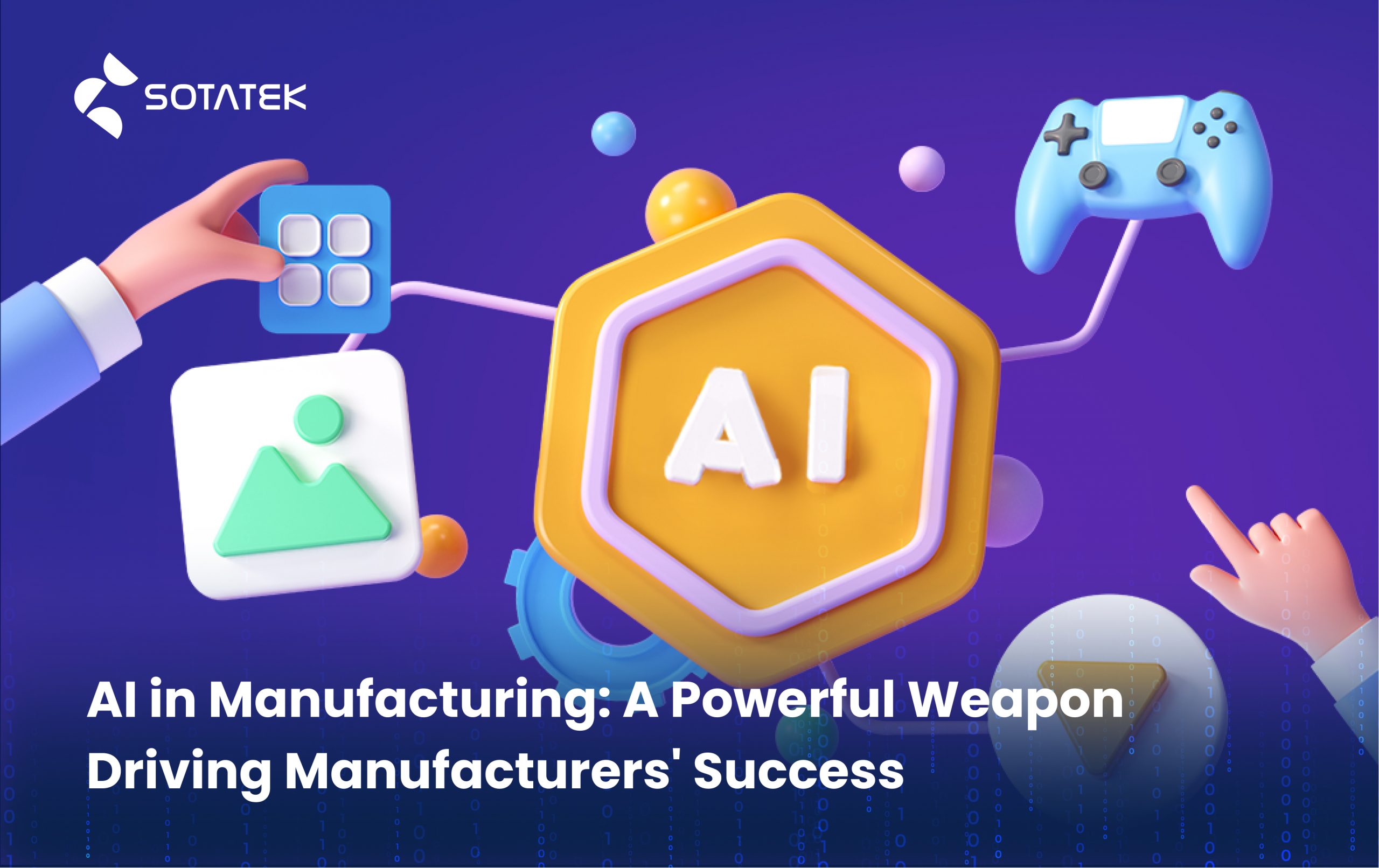With the rapid advancement of technology, most top-producing factories have no choice but to digitize their organizations. According to Vantage Market Research, AI in the manufacturing market will reach $17,925.50 by 2028, growing at a CAGR of 51.5%. It indicates that an increasing number of businesses are realizing the enormous advantages of AI, a promising future technology. AI and Machine Learning are no doubt potential technologies that help manufacturers reach skyrocket throughput, optimize processes, mitigate risks and make accurate predictions. To learn more about the role and benefits of AI in manufacturing, let's keep reading!
1. What's Causing the Urgent Need for AI in Manufacturing?
AI technology (Artificial Intelligence) refers to machines or systems that can mimic human intelligence in order to perform complex tasks based on data. It is easier to maintain and can be adapted quickly when management changes the manufacturing strategy and production plans.
AI-based technology can help manufacturing firms speed up the digital transformation process with various huge benefits.
a. Reduces costs
AI is considered a powerful tool when it comes to predictive maintenance. It can identify issues in manufacturing processes before they occur, such as detecting misaligned parts or finding potential problems. Then, businesses can avoid risks and cut operating costs by using a proper predictive maintenance strategy and precise AI-based analytic algorithms.
b. Decreases production errors
Production companies can save time by using AI technology to identify and correct manufacturing process errors quickly. Manufacturers have to gather data from prior production cycles so that AI models can use that information to identify problems and suggest production procedures with drastically lower mistake rates.
c. Lowers labor costs
AI-powered solutions can replace many manufacturing jobs, and workers can be trained for higher-level positions like machine control instead of manual work that demands exceptional physical strength and accuracy.
Furthermore, it is predicted that collaboration between humans and machines will increase productivity in labor-intensive areas by 20%. Long-term labor cost savings come from investing in AI, which also gives your staff the opportunity to gain new skills for your business.
2. Key Uses for AI in Manufacturing
a. Quality Assurance
Every step of the manufacturing process must be 100% accurate. Therefore, highly accurate electronic devices driven by AI are the best fit for this sector. Prior to now, quality control has always been a manual procedure carried out by craftsmen who could guarantee that electronics and microprocessors were being built correctly.

With high accuracy, AI can now replace humans in manual quality assurance
A product's flawless production can now be automatically verified by image processing algorithms. This sorting can be executed automatically and in real-time by placing cameras at strategic locations on the production floor.
b. Assembly Line Integration
One could say that industrial processes generate a tremendous amount of data. Presently, equipment in manufacturing companies sends massive amounts of data to the cloud, but sadly, this information isn’t utilized well.
Therefore, it is essential to have a system that enables organizations to store and categorize information in several dashboards for better management. Firms can make sure that they're getting a full perspective of the operation by developing an integrated app that draws data from the range of IoT-connected equipment.
c. Supply chain and logistics management
Logistics management: Automation of logistical processes is possible with AI-based image processing, which has an impact on the management and flow of goods. Machine learning algorithms can help manufacturers create the best supply chain for all of their products. This allows for the identification of components and the appropriate delivery route.

AI is a powerful technology for managing logistics and supply chains in manufacturing processes
Supply chain: As large manufacturers have massive supply chains with millions of orders, materials, or ingredients to process, an AI-driven system will be a game-changer for them. With AI technology, processes are handled automatically to assist businesses in managing with less time and staff.
3. Challenges of adopting AI in Manufacturing
a. Integration
One of the biggest challenges with AI implementation in the manufacturing industry now is integration. AI integration into the existing systems is more complex than installing a browser plugin. It's actually about collecting, categorizing, and labeling a huge amount of previous data into the new system. Imagining an organization with thousands of employees, complex producing processes, and lots of data through the years, switching to an AI system is not an easy task.
b. High implementation costs
Implementing AI is costly, especially when developing a customized solution. This includes money as well as time, talent, and tools. AI specialists, such as data scientists, software engineers, and developers while AI manpower is now in short supply. Thus, this scarcity of human resources increases the financial budget for implementation. That's why AI is better suited to large-scale corporations with the solid financial ability to adopt and maintain.
4. Conclusion
AI and Machine Learning must start employing innovative manufacturing technology right away if they want to remain competitive in the future. By significantly reducing operating costs, speeding up time to market, and enhancing performance, surely that early adopters will have a huge competitive advantage.
If you are overwhelmed and don't know how to start, just contact us now for a free consultation. SotaTek with 1000+ staff and various AI projects that have received countless positive feedback from users will have you evaluate your readiness for AI implementation.



